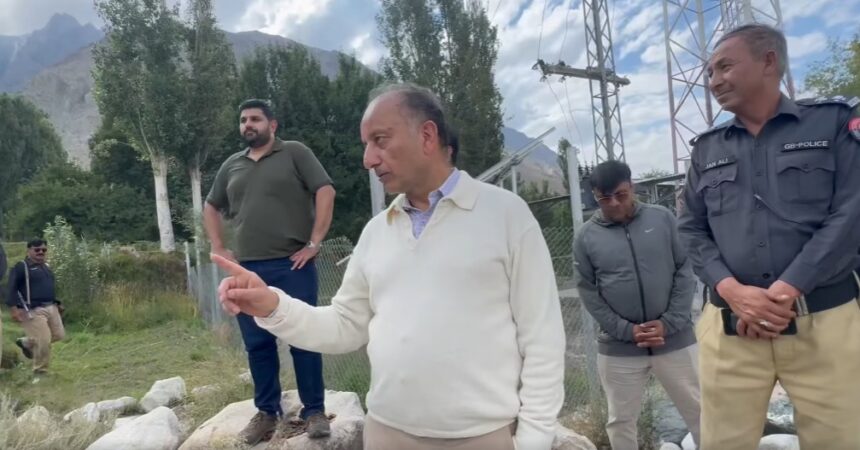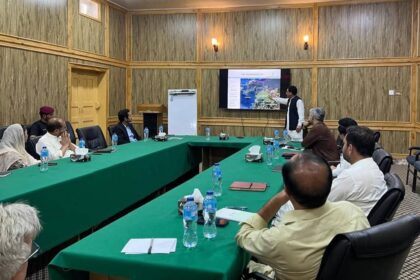Federal Climate Change Minister Dr. Musadik Malik conducted inspections of early warning system sites in Shigar District, Gilgit-Baltistan, highlighting the government’s commitment to improving climate resilience in high-risk mountainous areas. The visit focused on reviewing safety measures and the operational state of the early warning systems at Golapur and Barah, both situated in communities vulnerable to natural disasters.
During his visit, Dr. Malik received briefings from local authorities and representatives of relevant institutions on the current status of these early warning systems as well as the strategies in place to protect residents from threats such as glacial lake outburst floods, landslides, and flash floods. The minister stressed the critical importance of proactive risk management, pointing out that safeguarding families in these regions is a core responsibility.
The early warning systems are a vital part of Pakistan’s broader national strategy for climate adaptation, with particular emphasis on areas like Gilgit-Baltistan that are increasingly exposed to climate-induced hazards due to shifting weather patterns and glacier activity. By closely monitoring and supporting the implementation of these systems, the government aims to provide timely alerts and bolster community readiness.
Dr. Malik’s inspection underscores an ongoing government effort to regularly assess climate change infrastructure across vulnerable regions and ensure that protective measures are not only established but are also effectively maintained for the safety and wellbeing of local residents.











